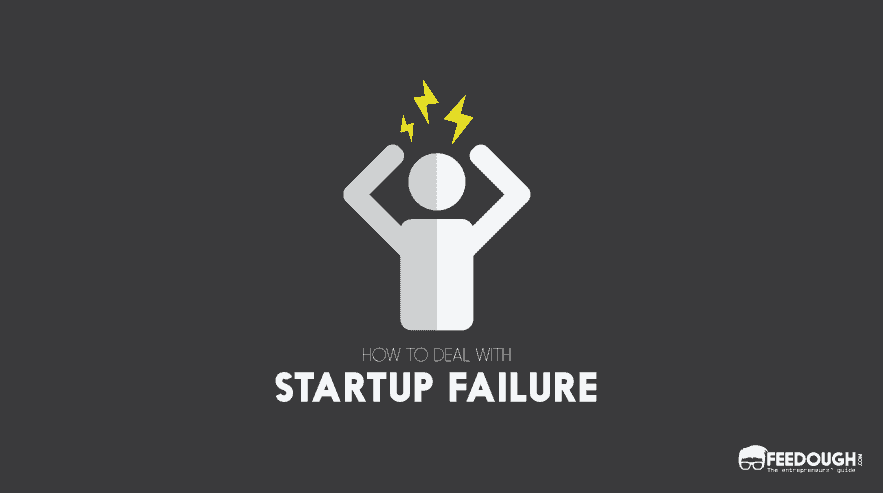Your startup has fallen. Maybe you lost your biggest customer, maybe you haven’t attracted anyone for a long time, or maybe the brand loyalty wasn’t there. Whatever the reason for such a failed experience, it can have a huge impact on you and your career path, depending on your experience and age, and your own perception of the blame for the failure.
Fortunately, startup failure is a constant in today’s business world and is considered to be a significant and essential part of new business ventures. Successful business leaders aren’t born successful but fail consistently until they achieve success.
Steve Jobs and Apple are a lasting example of this. The company went through years of struggles, various bad decisions, and failures, and Steve Jobs was even forced to leave the company at a certain point. In the end, they persevered and created the iconic $1 trillion company it is today.
Failing and rising again is, before everything else, a learning process. One that requires you to change your mindset, how you handle things and perceive them but most importantly, how you perceive yourself.
Know That You Will Fail
The best way to deal with a potential failure is to be prepared for it in advance. Even though counterintuitive, it is still the best strategy to handle a startup failure. Most people don’t like to think about failing and for this reason, the majority of them ends up doing it.
Nowadays, it’s easy to find many budding entrepreneurs all excited about their new bulletproof business plan. But most of them aren’t aware that business is a game of probability – there’s always a 50-50 chance of either succeeding or failing.
And with every business failure, self-doubt and emotional problems quickly follow. You will need to steel yourself and be full of courage to overcome this. Nobody wishes for failure but if it comes, just face it. Sometimes bad things happen, but it much better to think about them before than to live in an illusion that nothing will ever go wrong.
Prepare for failure by giving your business everything you got, while simultaneously expecting that the worst will happen. Prepare a contingency plan, just in case. The reason why successful entrepreneurs start a new business venture despite the previous failing is that they have a contingency plan.
Think about developing an alternative income while your business is still successful. For example, you may wish to go into the stock market and find a suitable small cap stock – then you could have a backup option that can bring you a passive income while you think about what to do next. Or plan another business venture and develop a sustainable model. You might be back to square one the next day, but there will be something to start with.
Find The Time To Analyze Your Failure
“Those who cannot remember the past are condemned to repeat it” – George Santayana
Analyze completely the circumstances and situation surrounding business failure. Physically schedule time on your calendar to do this, either alone or with someone whose business advice you appreciate and review everything that led to the failure. Where were the mistakes made?
Maybe the cash flow was inconsistent and inefficient and lead you to a cash crunch or the brand message didn’t convey the meaning properly. Maybe your product had poor quality or there was no market for it. Perhaps your business model was unviable or you just lost focus and passion you had in the beginning. Where is your fault in all of this?
Try to answer these questions sincerely as possible and without expecting the meeting to end with definitive and clear solutions. Take your responsibility in all of this so you can learn what went wrong instead of just blaming everyone and feeling pity for yourself.
Start all over again
Find a way to deal with self-doubt and emotional baggage that came with failure and determine whether you have the guts to start everything over again. Is there a passion in you to go after it again, or is it better to search for a safer route? Sift through different options and career paths available to you. It can be helpful to write down your skills and income you can get from them on a piece of paper. Add time and circumstances into the equation. Perhaps your new startup should wait for different circumstances or you may wish to learn new skills before starting over again. Learn from your previous mistakes and find what you can do differently when you start again.
Look Ahead
Before you develop another business plan, start by creating a vision. Write it down. Then use it as a roadmap for your business plan since it will give it clarity. A vision is what your company is aspiring to be. Think about the future.
What outcomes do you wish your business to achieve? Where do you want your company to be in the following months? The vision will serve as a guide for this. And you must do this in a clear and comprehensible way since it is one of the better tools to motivate your employees.
Your vision should include services or products you are going to offer, the niche your company is in, the problem you are going to solve, your mission statement, ways to search for prospects, marketing strategy and ways to position your business against its competitors.
Salvage what is left
Evaluate what is left of your business assets after the failure. Vehicles, office space, equipment, good employees, intellectual property, everything comes into question. Then sell those or lease them so to have an investment for the new business venture. You can either sell them individually or collectively as a company. If you have trouble selling or leasing them, consider contacting:
- Your competition
- Your business partners
- Ads, forums, blogs, newspapers
You can use the client base or business relationships your company has developed while it was successful for a new startup. Even though those clients that have stayed with your business till the end may not seem useful in the aftermath of the failure, there can be a big asset in your future investments. Also, remember to ask them for their feedback about your failed startup as they may have noticed some mistakes that you have missed.
Don’t let the failure of your previous startup keep you from starting again. It is going to be hard but remember that evolution created the entirety of all sentient life on earth by using only one tool: the mistake.
Go On, Tell Us What You Think!
Did we miss something? Come on! Tell us what you think about our article on How To Recover From A Startup Failure? in the comments section.
A startup consultant, digital marketer, traveller, and philomath. Aashish has worked with over 20 startups and successfully helped them ideate, raise money, and succeed. When not working, he can be found hiking, camping, and stargazing.





![What Is Brand Experience? [A Detailed Guide With Examples] BRAND EXPERIENCE](https://www.feedough.com/wp-content/uploads/2020/04/BRAND-EXPERIENCE.webp)


![AI Brand Equity Calculator [Unlimited & No Login] AI Brand Equity Calculator](https://www.feedough.com/wp-content/uploads/2024/11/AI-Brand-Equity-Calculator-150x150.webp)
